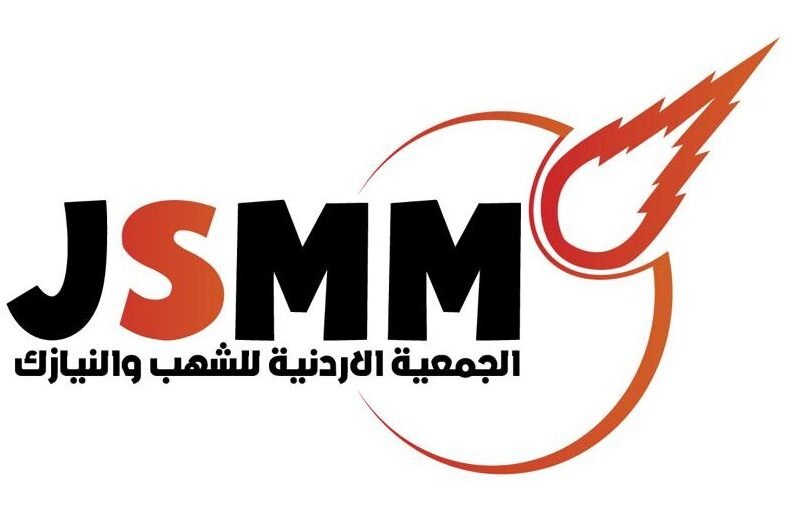Keynote Speakers

Prof. Hamid M.K. Al-Naimiy
Prof. Hamid M.K. Al-Naimiy is Advisor to the University of Sharjah, President of the Arab Union for Astronomy and Space Sciences (AUASS), and Director General & Founder of the Sharjah Academy for Astronomy, Space Sciences, and Technology (SAASST). An astrophysicist by training, he earned his PhD from the University of Manchester. Over a distinguished career, he has led the establishment of observatories and space-science centers across the Arab region, strengthened international partnerships, and championed capacity building and public engagement. At SAASST, he oversees research in observational astronomy, space data and imaging, and space-weather studies, alongside national training programs—helping position the UAE as a regional hub for space science and innovation.

Professor Diana Worrall
is General Secretary of the International Astronomical Union (IAU) for the triennium August 2024 to 2027, after having served three years as Assistant General Secretary. She is Emeritus Professor of Physics at the University of Bristol, United Kingdom, where her primary research concerns the high-energy astrophysics of active galaxies, mainly through X-ray and radio observations and modelling.
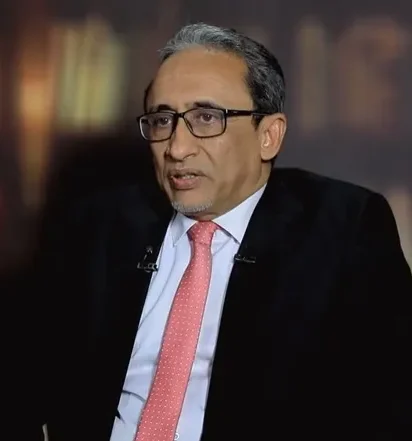
Ambassador Mohamedi Ahmed Al-Ni
Nationality: Mauritanian
Current Position: Secretary-General of the Arab Economic Unity Council – League of Arab States
Date of Appointment: June 10, 2021
Qualifications and Experience
A distinguished economist, selected through a specialized competition to work at the Arab Investment and Export Credit Guarantee Corporation, headquartered in Kuwait.
Held several senior positions at the Ministry of Economy in his country, where he gained extensive experience in administration and economic policies.
Researcher and economic analyst in multiple fields, most notably:
Econometrics
Macroeconomics
Investment, insurance, and trade
Credit rating agencies
Financial alignment of institutions and companies
Combating money laundering
Distinguished by practical expertise in economic modeling and analyzing independent and dependent variables, which enabled him to provide scientific and practical contributions to support economic decision-makers at the Arab level.

Dr. Firas Jarrar
Dr. Firas Jarrar is the Dean of the School of Engineering Technology at Al Hussein Technical University (HTU). He earned his Ph.D. degree with honors in mechanical engineering from the University of Kentucky in 2009. His prior academic experience includes working as an assistant professor at Khalifa University and before that at the University of Jordan. Moreover, his professional background includes three years as a mechanical engineer with the Jordan Petroleum Refinery Co.
Dr. Firas is a passionate space enthusiast who has devoted significant efforts to advancing space technologies. During his work at Khalifa University, he supervised the design and construction of two CubeSats: DhabiSat and Light-1. He also served as manager of the Yahsat Space Lab, where he supervised the CubeSat projects and was responsible for the space concentration academic program at Khalifa University. To acknowledge his contributions, he was featured at the Expo 2020 UAE Pavilion, Land of Dreamers Who Do.
He also serves as the project lead for the Al-Rhim Sat CubeSat initiative at HTU, which was awarded a launch opportunity by the United Nations Office for Outer Space Affairs in 2025. He is also the lead developer of the CubeSat Wizard software application.
Dr. Firas has more than seventy papers published in peer-reviewed international journals and conference proceedings. In 2017 he was awarded the Dean of the College of Engineering Teaching Award at the Petroleum Institute. He has also participated in several public television interviews to speak about space-related scientific and technological issues.

Prof. Hanan Issa Malkawi
Professor Hanan I. Malkawi is a distinguished scientist with extensive international academic and research experience. She earned her undergraduate degree in Biology at Yarmouk University, Jordan, where her exceptional performance earned her a prestigious scholarship as the top student in both her department and the university. She then pursued advanced studies in the United States, completing a Master of Science in Bacteriology & Public Health and a Ph.D. in Microbiology & Molecular Biology at Washington State University.
Prof. Malkawi joined Yarmouk University, leading pioneering research in biotechnology, nanotechnology, and space biology, with applications spanning healthcare, agriculture, environment, food security, and industry. She has authored over 75 publications in high-impact journals, holds multiple patents, and presented her work at more than 130 international conferences.
Her leadership includes roles as Vice President for Research & International Relations and Dean of Scientific Research at Yarmouk University, Vice President for Science Engagement at the Royal Scientific Society, and Vice President of the Arab Science & Technology Foundation, alongside service on numerous national and international committees.
Prof. Malkawi has secured research funding with millions USD and received honors including the King Abdullah II Ibn Al-Hussein Medal for Excellence. She is celebrated for mentoring young scientists and promoting innovation and entrepreneurship

Dr Martin Dominik
Martin Dominik is a Reader in Physics & Astronomy at the University of St Andrews in Scotland and Co-Director of the St Andrews Centre for Exoplanet Science. His research mainly focuses on applications of the gravitational microlensing effect, including the demographics of planets and black holes throughout the Milky Way. Martin is a strong advocate of communication being an essential part of science, and science being an integral part of society and culture. He organised a Royal Society Discussion Meeting on “The detection of extra-terrestrial life and the consequences for science and society” and designed an exhibit “A message from afar” on the Search for Extra-Terrestrial Intelligence and what it means to be human. Martin is Past President of the Network of Researchers on the Chemical Emergence of Life (NoRCEL), has served on the Executive Committee of the Global Young Academy (GYA), and is a Member of the International Academy of Astronautics (IAA). He is engaged in fostering research communities and shaping research environments that make creative minds flourish, in nurturing links across national borders, as well as across the sciences, humanities, and arts, in building capacity in fundamental sciences, and in improving education.

Dr. Ricky J. Lee FRSA FIAASS FIASLP FCLA FANZCN FNSSA
Dr. Ricky J. Lee is recognised as an expert in space law and international business law. For over 25 years, Ricky has lectured and published on various topics of space law, public and private international law, comparative law, and commercial law at universities in Australia, England, India, New Zealand, and elsewhere around the world. Over these years, he has advised and acted for launch operators, satellite operators, government agencies, multinational businesses, and technology startups around the world.
Ricky is Senior Lecturer in Law, University of Canterbury, New Zealand; Adjunct Professor of Law, University of Notre Dame Australia; and Adjunct & Visiting Professor of International Law, Nirma University, India. He is the Executive Director of the International Academy of Space Law and Policy and the Director of Studies and Councillor of the Notaries Society of South Australia. He is a Fellow of the International Association for the Advancement of Space Safety, the International Academy of Space Law and Policy, the Royal Society for Arts, Manufactures, and Commerce, and the Commercial Law Association of Australia, among others.
Ricky has published over 200 books, chapters, articles, and seminar papers on space law, international law, and commercial law. He was a speaker at the 2025 U.N. Science Summit; the 2018 United Nations Conference on Space Law and Policy, the 2002 and 2003 United Nations Workshops on Capacity Building in Space Law, and past meetings and conferences of the International Astronomical Union, the International Association for the Advancement of Space Safety, the International Bar Association, and the International Law Association.
Ricky divides his time between coordinates in Australia, India, and New Zealand.
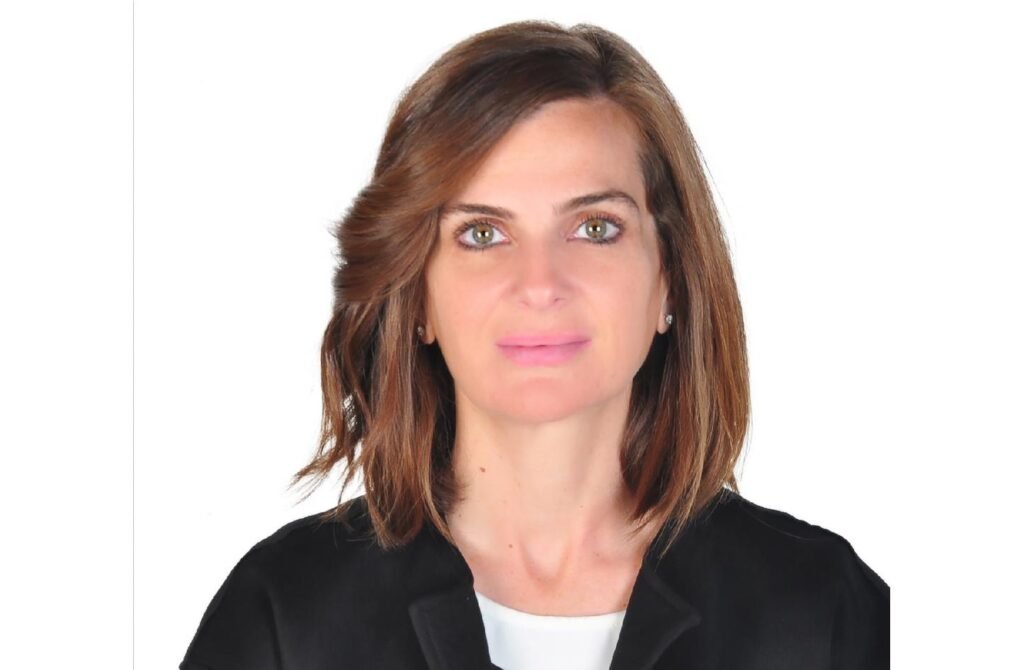
Ms. Rasha Al-Amad
serves as the Director of Strategic Planning and Vice President of International Relations at the Bahrain Space Agency. She is widely recognized for her extensive and diverse experience in project management, strategy development, and innovation within the space sector. Ms. Al-Amad plays a pivotal role in formulating Bahrain’s national space plans and oversees their implementation in collaboration with government bodies, academic institutions, and the private sector, ensuring the country’s vision for a thriving space industry is realized.
Ms. Al-Amad is also instrumental in enhancing international cooperation between the Bahrain Space Agency and regional as well as global space agencies. She fosters research and educational environments that support the development of national capacities in space science and technology. Additionally, she supervises the execution of innovative space projects focusing on sustainability, inclusivity, and linking scientific research to societal needs.
She holds a Master’s degree in Computer Science from Concordia University and has obtained specialized certifications in Project Management and Innovation. With over a decade of professional experience in strategy development and project management prior to joining the space agency, Ms. Al-Amad stands as one of the leading figures in the regional space sector.

Dr Sohan Jheeta
Dr Sohan Jheeta is a UK-based research scientist and educator specialising in astroscience and the chemical emergence of life. He founded the Network of Researchers on the Chemical Emergence of Life (NoRCEL), now The NoRCEL Institute with its Education & Research Academy (ERA). He has authored 40+ peer-reviewed papers, delivered 120+ presentations including 19 invited keynotes, and serves on editorial boards including Life, Sci, and Advances in Astronomy. A committed communicator, he leads outreach such as ASEN and the Blue Earth Project, and supports early-career scientists through NoRCEL travel bursaries. Fellow: FRSB, FRMS, FNoRCEL; Member: MRSC, MInstP; UK STEM Ambassador.

Dr. Randa Asa’d
Dr. Randa Asa’d obtained her Ph.D. from the University of Cincinnati (USA). Her research interest focuses on fitting the observed spectra of distant star clusters to trace the chemical enrichment history of their host galaxies. She has been an invited visiting researcher at several renowned astrophysics research centers like Harvard-Smithsonian Center for Astrophysics (CfA), Space Telescope Science Institute (STScI) and ESO headquarters, among others. Dr Asa’d has been awarded time to observe distant star cluster at some of the largest telescopes in the world, including the VLT, Blanco, SOAR and Gemini. Her research is presented at international conferences and published in leading peer-reviewed astrophysics journals like ApJ, AJ and MNRAS. In Spring 2022, she received CAS Excellence in Research Award at the American University of Sharjah.

Prof. Luis C. Ho
Prof. Luis C. Ho is Director of the Kavli Institute for Astronomy and Astrophysics at Peking University and a University Chair Professor; he also serves as a Distinguished Research Fellow at the National Astronomical Observatory, Chinese Academy of Sciences. He holds a PhD in Astronomy from the University of California, Berkeley (1995) and a BA in Astronomy from Harvard University (1990). Previously, he was a Staff Astronomer at the Carnegie Observatories.
An expert on active galactic nuclei, supermassive black holes, and the coevolution of black holes and galaxies, Prof. Ho has also served as Associate Editor (2012–2018) and Deputy Editor (2018–present) of The Astrophysical Journal Letters. His honors include Member, American Academy of Arts & Sciences (2023); Fellow, American Astronomical Society (2022); and shared awards with the Event Horizon Telescope Collaboration: the Breakthrough Prize in Fundamental Physics (2019) and the Einstein Medal (2020).
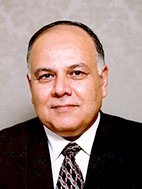
Professor Amr Ezzat Salama
is a leading Arab academic figure with decades of experience in higher-education leadership and public policy. He has served in senior university and governmental roles, including multiple terms as Egypt’s Minister of Higher Education and State for Scientific Research, where he advanced reforms on quality assurance, accreditation, and innovation policy, and worked to connect research with national development priorities. He is currently the Secretary-General of the Association of Arab Universities, steering collaborative programs that strengthen institutional governance, promote recognition of degrees and programs, and expand faculty and student mobility across the region. His agenda emphasizes digital transformation, international partnerships, entrepreneurship, and effective technology transfer from campus to industry. Known for a calm, results-oriented leadership style, he cultivates broad networks with Arab and international institutions. Professor Salama remains a trusted voice on university reform, talent development, and building a knowledge-based economy responsive to global change.

professor Dr. Taha Tawfik Rabeh
is regarded as one of the most distinguished scientists in the Arab world in the fields of astronomy and geophysics. He currently serves as the President of the National Research Institute of Astronomy and Geophysics (NRIAG) in the Arab Republic of Egypt. With decades of academic and research experience in geomagnetism, seismology, and applied astronomical studies, Dr. Rabah has played a vital role in strengthening the research infrastructure of the Institute, which is considered one of the oldest and most prestigious scientific institutions in the region, founded in 1903 as a specialized reference in astronomy and geophysics.
Dr. Rabah has led numerous strategic research projects linked to the Institute’s observatories, including the Kottamia Astronomical Observatory, the Fayoum Geomagnetic Observatory, and the Abu Simbel Geomagnetic Observatory, which contribute to monitoring astronomical phenomena, seismic activity, and studying the Earth’s magnetic field. He has also actively participated in regional and international conferences, fostering scientific cooperation between Egypt and other Arab countries in the fields of space, astronomy, and geophysics.
Throughout his academic and professional journey, Dr. Taha Rabah represents a model of a scientist who combines scientific expertise with administrative leadership. He remains committed to advancing scientific research in service of society and sustainable development, and to consolidating NRIAG’s role as a distinguished regional hub for space and Earth sciences
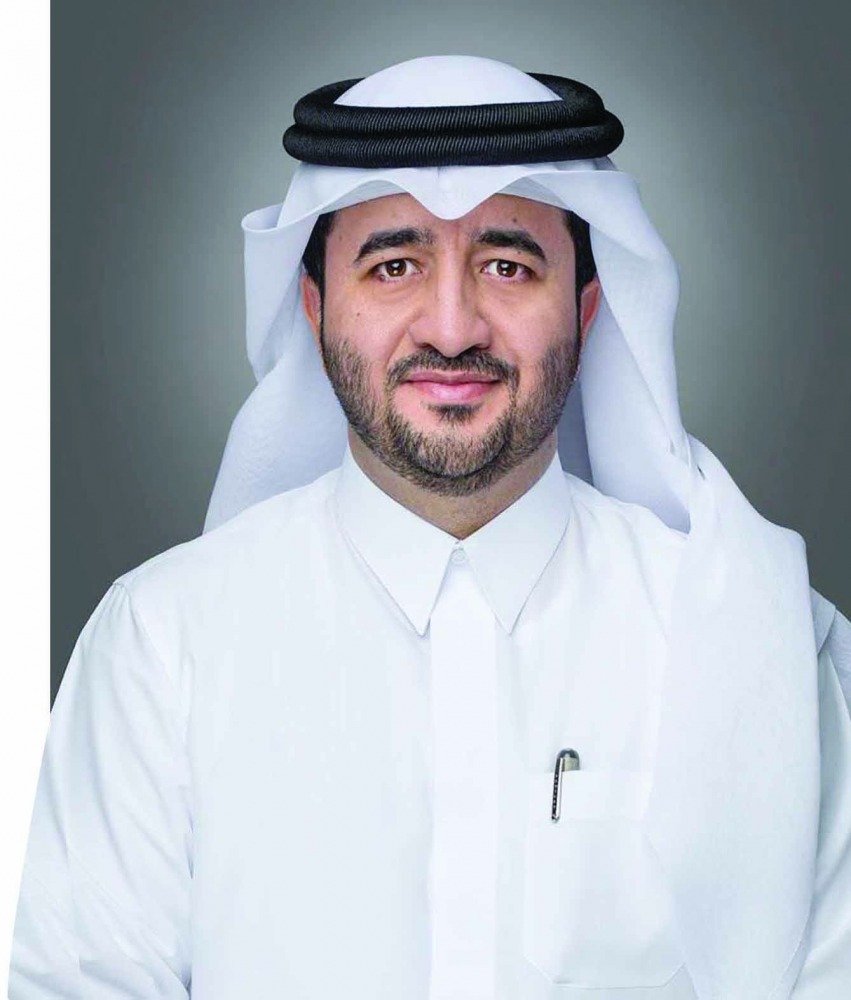
Eng. Faisal Al-Ansari
serves as the Executive Director of the Qatar Calendar House, and he is recognized as a prominent figure in the fields of astronomy and calendrical science in Qatar and the Arab world. He plays a vital role in providing accurate astronomical calculations related to Islamic timings, lunar crescents, and the beginning of Hijri months, in addition to leading media and cultural initiatives aimed at raising public awareness on these important issues. Through his expertise and administrative leadership, Al-Ansari has successfully fostered collaborations between the Qatar Calendar House and other Arab institutions, such as the Ajiri Scientific Center, resulting in the publication of distinguished joint calendars that combine astronomical, historical, and cultural knowledge.
Eng. Al-Ansari also oversees the official astronomical announcements, such as the declaration of new lunar months and the determination of crescent birth times based on precise astronomical studies. This ensures the credibility and reliability of the Qatar Calendar House as an authoritative reference in this domain. Under his leadership, the institution provides services to the public through astronomical data, media awareness, and bulletins explaining celestial events and seasons, thereby contributing to enhancing astronomical and calendrical literacy within society.
Through his efforts, the Qatar Calendar House has strengthened its role as a leading academic and technical reference in astronomy and the Islamic calendar, bridging science, religion, and culture while maintaining accuracy and scientific integrity in all of its publications and research.
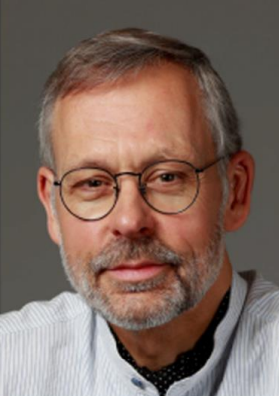
Jacques Arnould
Born in 1961, Jacques Arnould is engineer in agronomy and forestry, has a Ph.D. in History of Sciences and a Ph. D. in Catholic Theology. He is taking an active interest in the interrelation between sciences, cultures and societies with a particular interest for two set of themes: the first related to the life sciences and evolution; the second related to space conquest. Since 2001, he is an Ethics Adviser to the French Space Agency (CNES) as well as collaborating with,
since 2000, International Space University (Strasbourg, France) as adjunct faculty. In addition, he was the past President of the Scientific Committee of the Air and Space Museum of Le Bourget (Paris, France); the Secretary of the College of French
Terminology for Astronautics (Ministère de la Culture, Académie française); belongs to the International Academy of Astronautics and to the Académie Royale de Belgique; and was selected for the International Astronautical Federation Hall of
Fame 2022. Finally, he received in 2004 the Labruyère Prize from the Académie Française and in 2011 the Audiffred Prize from the Académie des sciences morales et politiques. Among his books published in English about Space Activities:
Icarus’ Second Chance. The Basis and Perspectives of Space Ethics, Springer, 2011 God, the Moon, and the Astronaut, ATF Theology, 2016 Impossible horizon. The essence of space exploration, ATF Press, 2017 Ethics Handbook for the Space Odyssey, ATF, 2020.


